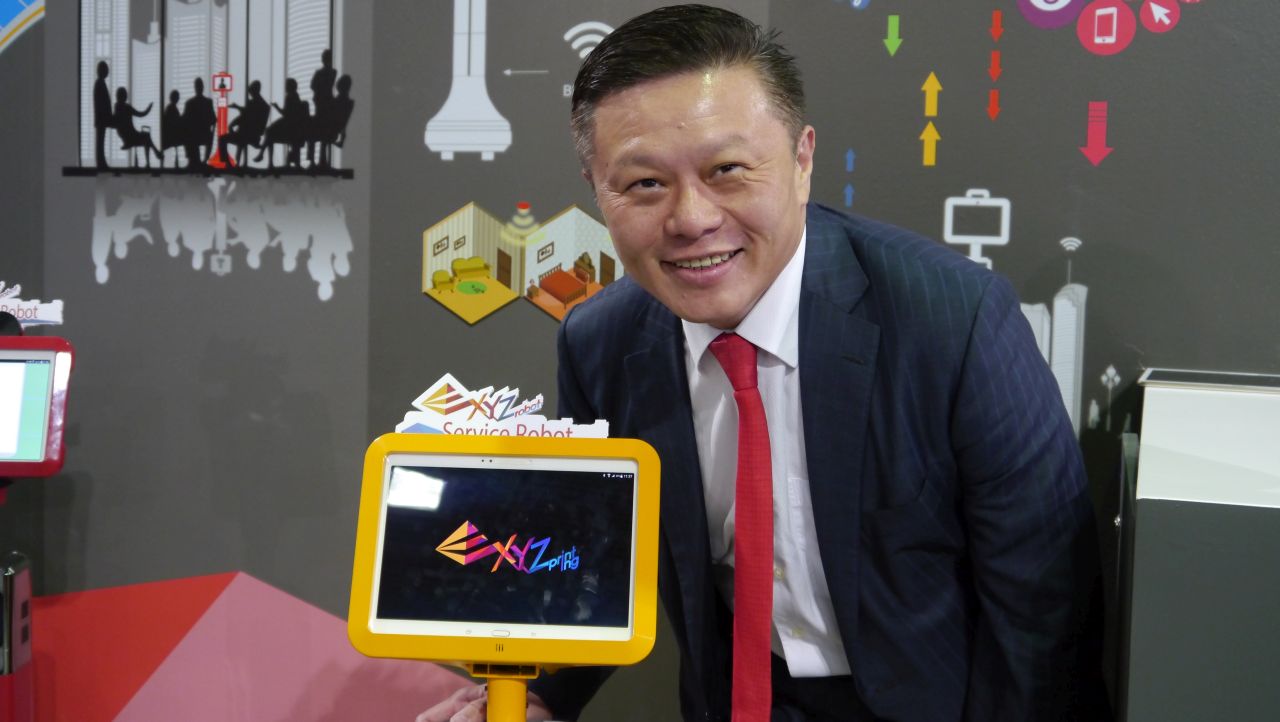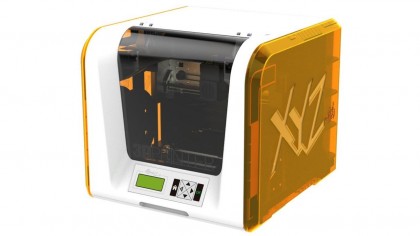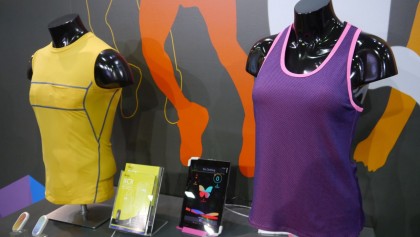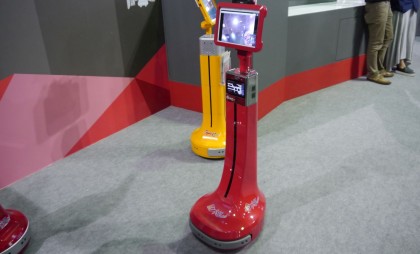A multi-billion-dollar company you never heard of wants to change the way you eat
XYZPrinting goes beyond printing

Sign up for breaking news, reviews, opinion, top tech deals, and more.
You are now subscribed
Your newsletter sign-up was successful
Despite its name, XYZPrinting, is not all about printers. The company, which made the headlines days ago at IFA 2015 with its food printer, also had robots, a NAS box, a 3D scanner and smart clothing on display on its booth in Berlin.
But, as its CEO, Simon Shen told us, its plans go beyond these with one of its most ambitious goals being to revolutionise the way we eat by allowing consumers to grow vegetables at home the easy way.
XYZPrinting as we found out last year, is just one of six companies that Shen oversees as part of the New Kinpo group of companies. With total sales of $7.2 billion last year, it produces a mind-boggling variety of items for other more, well-known companies to rebadge and sells as theirs.
So is life as an ODM (original design manufacturer) or EMS (Electronics Manufacturing Services) provider. From hydroponic vegetable farm to calculators or air conditioning systems, New Kimpo has grown to be a major player in technology while taking the backseat when it comes to branding.
That has changed though with XYZPrinting, an own-brand, which is being used by New Kimpo to try new things.
Launched two years ago, the 3D printer company saw brisk business with sales of its products expected to more than double this year, making it one of the bigger 3D printer players on the market and certainly the one with the cheapest out-of-the-box printer on the market.

Its Da Vinci Junior 3D Printer costs a mere £299.99 in the UK, a far cry from the £1000+ some 3D printer manufacturers were charging for do-it-yourself kits. Aimed at a younger audience, it sports a flashy, updated design, quite different from the Da Vinci 1.0, the company's first go at 3D printing.
Sign up for breaking news, reviews, opinion, top tech deals, and more.
Exploring new markets
"Our customers didn't do 3D printers", Shen told TechRadar Pro, "so we decided to do it ourselves". Trying to avoid any overlap with its contract customers means that New Kimpo has often to look ahead of the curve for promising niche markets.
So don't expect them to compete in any mature segments: smartphones, tablets, televisions or laptops. That's where Compal, one of the biggest producers of the four aforementioned products in the world and a sister company to New Kinpo, comes in, helping the group generate nearly $33 billion in revenues annually.
Instead, New Kimpo has chosen to focus on the type of products that will make the average technophile drool: robots, smart clothing, smart home and even, potentially, drones. No hoverboards or driverless cars sadly for now.

"We are only interested in cutting edge technology", Shen added as we tour the booth. He evokes a day in a not-so-distant future when house chores will be done by robots (there were a few on the booth) helped by sensors everyone, with data being analysed and stored locally in what Shen called the Data Centre at home, part router, part NAS.
Say hi to your robot overlords
No wonder therefore that XYZRobot was launched earlier this year with other sub-brands likely to follow (you can of course, get print 3D parts for your robots).
"Robots can replace humans in a number of retail situations", he candidly alluded to. Shen used the example of bank tellers suggesting that they might make way for their robotic equivalents.
Bank of Tokyo Mitsubishi UFJ, one of the world's largest banks, has already introduced a humanoid robot – not one of XYZRobot's - in its branches this year as part of a limited trial ahead of the 2020 Tokyo Olympics. Nao, the robot's name, is not a bank teller yet but more of a customer support staff.

But the idea that caught up my imagination was the smart vegetable box, one that would almost completely automate the production of your favourite greens. New Kinpo already produces salads in production lines (yes, production lines) on an industrial scale in Taiwan.
Every day, coriander, romaine, arugula and many other hydroponically-grown types of greens are delivered to dozens of businesses across the country.
This time, Shen said, they want to go further and allow the end user to grow their own veg at home using a miniature, self-sustainable version of the plant factory that New Kinpo owns. Shen didn't disclose many details about how it would work but dropped a hint about the use of coffee-pod like capsules.
Beyond that, one could envisage growing any type of food (including artificial meat) at home. "We work on many such [food-related] ideas in our laboratories, some of them may make it, some of them won't". The food printer being one that graduated to a finished, demonstrable prototype. For the veg box though, it is a no-brainer, you end up with fresher, cleaner produce available when you need them.
In a not-so-distant future, a robot might prepare food, based on your health data (collected via smart clothing) and using ingredients picked up from a smart vegetable box. Or you could just 3D print your cake and eat it.

Désiré has been musing and writing about technology during a career spanning four decades. He dabbled in website builders and web hosting when DHTML and frames were in vogue and started narrating about the impact of technology on society just before the start of the Y2K hysteria at the turn of the last millennium.